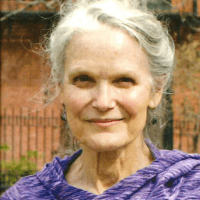This presentation brings Buddhist teachings on anatta to research findings based on the Silencing the Self Scale to examine central concepts of self and selflessness from Buddhist and Western psychological perspectives. Anatta, realized through meditation, insight, and teachings, is an essential aspect of the Buddha’s teaching on liberation from suffering. In contrast, selflessness, and self-silencing, which blend cultural prescriptions about women’s roles with their wish to be good and loving, are associated with depression among women crossculturally in numerous publications. Without adequate teachings on anatta, it would be easy for a person to continue a destructive pattern of subordinated selflessness while striving after “good bodhichitta.” I will contrast Buddhist teachings and practices about self/”nonself” with empirical findings regarding self-silencing to illustrate the kind of selflessness associated with women’s depression. The analysis clarifies the potential danger for a depressed person who turns to “Westernized” Buddhist teachings for solace and hopefully, recovery.
2014 International Symposium for Contemplative Studies Session


